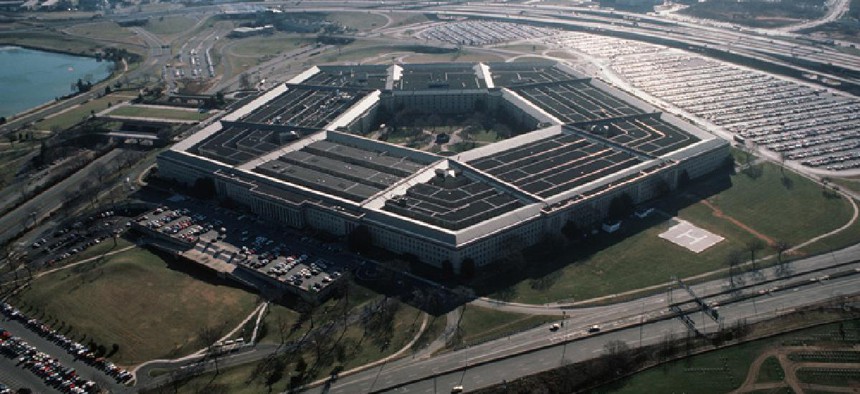
Defense Department file photo
Enough! Study finds voters overwhelmingly want big Defense cuts
Both Republicans and Democrats support substantial decreases.
Americans of all stripes have had enough of massive Pentagon budgets and want significant cuts in defense spending, according to new survey data released on Monday.
In Republican and Democratic districts across the country, 74 percent and 80 percent of respective voters said they want less defense spending, the study found.
On average, voters indicated that they wanted a budget for fiscal 2013 that would be nearly 20 percent less than current defense spending.
With $645 billion enacted for total defense spending this year, the average voter’s preferred budget for next year, an 18 percent cut, would translate into a $116 billion savings -- money lawmakers trying to balance the budget could sorely use.
The study’s results will disappoint defense hawks and industry officials fighting against spending cuts, especially those claiming to protect defense jobs in their districts.
Voters participated in an April survey that first presented and explained competing arguments for higher or lower defense spending. Some results of that survey have previously been released. But the authors dived into a deeper examination of party differences and found no statistically significant separation of attitudes on defense spending cuts between Republicans and Democrats. Moreover, voters in districts with or without defense industry jobs overwhelmingly said they want the federal government to spend less.
“The idea that Americans’ would want to keep total defense spending up so as to preserve local jobs is not supported by the data,” said Steven Kull, director of the Program for Public Consultation, which conducted the survey with the Stimson Center and the Center for Public Integrity, a nonprofit investigative journalism group.
Pork spending in districts has little effect on voter support for defense spending, the group claimed its findings showed. “Overall there was no statistical correlation between the level of defense spending in a district and the level of support for defense cuts.”
Some results were unsurprising. “Blue” district voters wanted larger overall cuts of 22 percent, compared with 15 percent preferred by voters in “red” districts. Blue-district voters wanted bigger cuts to missile defense, long perceived as a Republican-favored program, but “respondents in red districts were a bit more ready to cut health care benefits for military families and retirees,” which require government spending.
NEXT STORY: Six U.S. soldiers killed in Afghanistan attack







